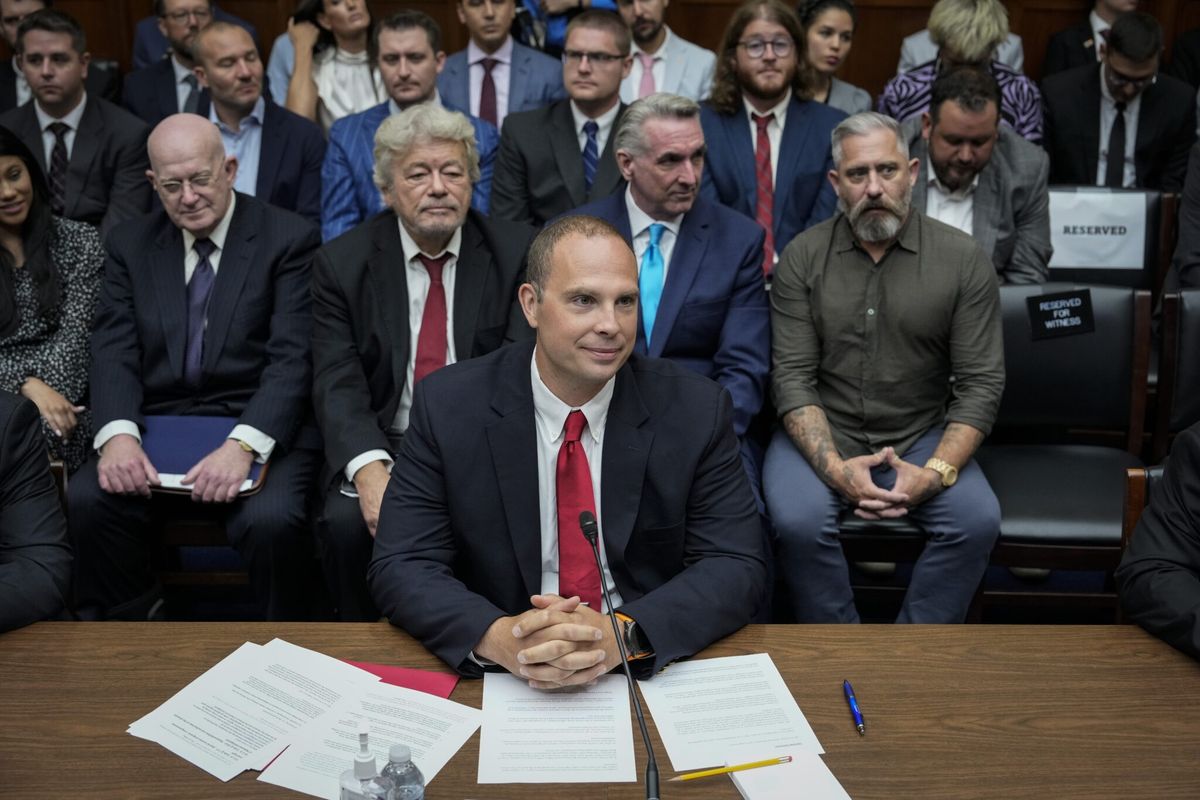OPINION — “Whereas it is essential that there be maintained in the armed services of the United States the highest standards of democracy, with equality of treatment and opportunity for all those who serve in our country's defense: Now therefore, by virtue of the authority vested in me as President of the United States, by the Constitution and the statutes of the United States, and as Commander in Chief of the armed services, it is hereby ordered as follows:
It is hereby declared to be the policy of the President that there shall be equality of treatment and opportunity for all persons in the armed services without regard to race, color, religion or national origin. This policy shall be put into effect as rapidly as possible, having due regard to the time required to effectuate any necessary changes without impairing efficiency or morale.”
With those words, President Harry Truman bypassed Congress and on July 26, 1948, signed Executive Order 9981 which mandated the desegregation of the U.S. military, a highly controversial step at the time particularly among military leaders and politicians.
It’s worth recalling what happened after Truman’s order because it echoes many of today’s complaints about current Defense Department policies of “equality of treatment and opportunity for all those who serve in our country's defense,” which also bypassed Congress.
Two days after Truman signed the order, no less a person than the Army Chief of Staff Gen. Omar Bradley, told The Washington Post, “The Army is not out to make any social reforms. The Army will put men of different races in different companies. It will change that policy when the nation as a whole changes it.” In other words, Bradley was saying the Army would retain segregation as long as it was the national pattern, and he was against making the Army an instrument of social change in areas of the country which still rejected integration.
The New York Times’ respected military correspondent Hanson Baldwin described the order as representing “extremely dangerous nonsense to try to make the Army other than one thing – a fighting machine.” Baldwin also said integration of all troops was one of the surest ways to break down the morale of the Army and destroy its efficiency.
Reflecting words used in last week’s House of Representatives debate, Truman’s Army Secretary Kenneth Royall, a retired Army general and North Carolinian by birth, said in March 1949, “The Army is not an instrument for social evolution. It is not the Army’s job either to favor or to impede the social doctrines, no matter how progressive they may be. It is not for us to lead or to lag behind the civilian procession except to the extent that the national defense is affected.” Royall also said, “A total abandonment of—or a substantial and sudden change in—the Army’s partial segregation policy would, in my opinion, adversely affect enlistments and reenlistments not only in the South but in many other parts of the country, probably making peacetime Selective Service [a draft] necessary. And a change in our policy would adversely affect the morale of many Southern soldiers and other soldiers now serving.”
Royall resigned a month later.
Looking for a way to get ahead of the week in cyber and tech? Sign up for the Cyber Initiatives Group Sunday newsletter to quickly get up to speed on the biggest cyber and tech headlines and be ready for the week ahead. Sign up today.
As claimed by some Republicans critics today, Truman was described as using integration of the military for political purposes 75 years ago. At the Democrats’ 1948 Philadelphia presidential convention that had just ended, liberals had pushed a civil rights plank in the party platform that included desegregation of the armed forces. As a result, Southern delegates from Mississippi, South Carolina and Alabama had walked out. Twelve days later, Truman signed the desegregation order and shortly thereafter the so-called Dixiecrat Party met and named Sen. Strom Thurmond as their presidential candidate for the election just three months off.
Needless to say, Truman won the election in a surprising upset with the black vote crucial in several key states including New York, which Truman won despite it being the home state of his opponent, the state’s governor, Thomas E. Dewey.
Desegregation of the military, however, became a slow and ever evolving process.
For example, in March 1950, the Army agreed to integration across the entire service, but the last segregated army units were not dissolved until 1954. The enlistment quota of African-Americans, originally capped at 10 percent, was abolished in 1950 when, at the onset of the Korean War, the Army agreed that all jobs within would be opened based on qualifications and not race. Black members of the Army and Marine Corps served in Korea at the same ratio as white men and combat integration failed to produce the violence or poor morale the military brass had feared.
Other civil rights elements became involved in military integration.
I was drafted into the Army in March 1957 at Fort Dix, New Jersey, along with two African-American friends from high school. New Yorkers, we were sent with a group from Fort Dix to Camp Gordon, Georgia for basic training. At Gordon, we were mixed into a unit that shared barracks with a group of Kentucky white men who had entered the Army thanks to the service program that helped them get their GED certificates. The Kentucky whites regularly harassed my friends and other blacks, and several fights broke out at night in the barracks.
More memorable was an event when time came for our first and only weekend leave. Our company’s administrative Master Sergeant, who was black himself, ordered us to remain on base after hearing that my two black friends and I were planning to go into nearby Augusta, Georgia. His justification was that the three of us – a white and two blacks — “would get into trouble trying together to go into a city that was highly segregated.”
In 1963, then-Secretary of Defense Robert J. McNamara, issued a policy directive that pushed military commanders “to oppose discriminatory practices affecting his men and their dependents and to foster equal opportunity for them, not only in areas under his immediate control, but also in nearby communities where they may gather in off-duty hours." However, it was not until 1967 that, with approval from the Secretary of Defense, the first non-military local establishment was declared off-limits. In 1970, commanding officers no longer needed to first obtain permission before declaring local housing areas off limits to military personnel because of their segregation practices.
The Cipher Brief hosts expert-level briefings on national security issues for Subscriber+Members that help provide context around today’s national security issues and what they mean for business. Upgrade your status to Subscriber+ today.
Desegregation efforts expanded with the creation of the all-volunteer army, as the American military saw enlistments of African-Americans and other minorities rise quickly. Ironically, it was in 2019 while Donald Trump was President that Congress passed — and Trump signed — the 2020 NDAA that required the Defense Department to expand its diversity, equity and inclusion (DEI) programs that governed whom it hired and promoted, and how troop treated each other.
Have the integration issues been solved?
Here is one view from a CBS Sunday Morning feature this past February, anchored by the network’s long-time Pentagon correspondent David Martin, which showed more work remains to have true integration in the services.
Martin asked Marine Lt. Gen. Dimitri Henry, an African-American who joined up 41 years ago at age 17, "Did you experience anything that felt like discrimination as you were coming up through the enlisted ranks?" Henry answered that there were points “where individuals would show their disdain for someone who looked like me … The typical name calling," he said included the n-word.
Henry said he chose not to react, adding, "If you're going to allow someone else to control your emotions, then you've already lost." Even today, as a Marine Lieutenant General, Henry told Martin he still feels judged by the color of his skin. "It helps me to focus more, because I understand what is being thought about me and what people may decide to do just based solely on what I look like … It's a survival type of tool."
Last week, House Republicans approved not one but three amendments aimed at endings so-called DEI [diversity, equity, inclusion] programs. One eliminated funding for all present DEI offices and another prohibited funds for establishing a Chief Diversity Officer. One other amendment in this category, authored by Rep. Eli Crane (R-Ariz.), barred considering race, gender, religion, political affiliation or any other ideological concepts as the basis for hiring, promotion or retention of DoD individuals.
Crane, during debate, said, “The military was never intended to be, you know, inclusive. Its strength is its standards…You can keep playing these games with diversity, equity and inclusion, but there are some real threats out there and if we keep messing around and we keep lowering our standards, it’s not going to be good,” he said.
It is worth pointing out, for some perspective, that during a March 9, hearing before the House Armed Services Committee, the Sergeant Major of the Army, Michael Grinston, testified on the importance of diversity and inclusion in military service. But he also noted that it took up a very small amount of training time. “When I looked at it, there is one hour of equal opportunity training in basic training, and 92 hours of rifle marksmanship training,” he said.
Military Times, on April 10, cited another example. The Army’s 101st Airborne Division, which has an annual two-hour training module only once a year, “includes sections on equal opportunity, operational security, combating human trafficking, employee safety, controlled unclassified information and a host of other topics,” according to the story.
Another Republican amendment that needs further study is one that prevents the Defense Department from using affirmative action policies in admission decisions at the U.S. military academies.
In Chief Justice John Roberts Supreme Court majority opinion on June 29, that ended affirmative action use in college admissions, Roberts included a footnote that exempted the military academies from the ruling because they had not been involved in this or prior such cases. Roberts cited a U.S. Government submission in the case which contended “race-based admissions programs further compelling interests at our Nation’s military academies."
There also was an amicus brief filed in the case by 35 former high-ranking Pentagon officers including four former chairmen of the Joint Chiefs of Staff – Marine Gen. Joseph Dunford, Air Force Gen. Richard Myers Navy Adm. Mike Mullen, and Army Gen. Henry Shelton. They argued, “Diversity in the halls of academia direction affects the theaters of war … The importance of maintaining a diverse, highly qualified officer corps has been beyond legitimate dispute for decades.”
However, there is support in the Senate for the House position. Senate Armed Services Committee Roger Wicker (R-Miss.), the ranking minority panel member, has announced his intention to do away with affirmative action at the military academies so its future is uncertain.
Perhaps the most publicized amendment added to the bill was the one which prohibits the Secretary of Defense from paying for or reimbursing expenses relating to abortion services, which the House approved by a 221-to-213 vote. Rep. Ronny Jackson (R-Texas) introduced the amendment with the backing of 71 other Republican co-sponsors, arguing the policy violates the 1993 Hyde Amendment, which prevents the use of federal funds for abortion.
At issue is a Pentagon policy established on October 20, 2022, after the Supreme Court’s June 2022 decision eliminated abortion as a Constitutional right. Entitled “To Ensure Access to Non-Covered Reproductive Health Care,” the policy authorized paid leave and travel for any service member or dependent if they have to travel to another state to obtain an abortion or abortion-related services.
In response to that policy, Sen. Tommy Tuberville (R-Ala.) since February has been holding up Senate confirmation of senior military officers that by now involves some 650 by now. When the Senate Armed Services Committee, where Tuberville is a member, marked up its version of the 2024 NDAA on June 22, the Democratic-majority panel twice voted down proposals similar to the language in the House-passed bill that blocks the policy.
Tuberville has more than once said his hold on flag officers would end when he gets a vote on the current policy on the Senate floor – a situation that will occur when the Senate takes up the 2024 NDAA, perhaps in the coming week.
In preparation, Armed Services Chairman Jack Reed (D-R.I.) announced last week there would be a Defense Department briefing for all Senators tomorrow [Wednesday] on the legality of Pentagon’s policy to support travel for reproductive healthcare. A Department legal opinion last year said that the Hyde Amendment “applies only to funds used to ‘perform abortions,’’ and “does not prohibit the use of funds to pay expenses, such as a per diem or travel expenses, that are incidental to the abortion.”
The Congress legislative fights as part of the nation’s culture wars have just begun, and perhaps it’s fitting that the 2024 Defense Authorization Bill be among the first battles.
Despite having a Black Defense Secretary, Lloyd Austin, and an incoming Black Joint Chiefs Chairman, Gen. Charles Brown, Truman’s full integration of the military after 75 years remains incomplete as these legislative debates prove and these two top officials know from experience.
The Cipher Brief is committed to publishing a range of perspectives on national security issues submitted by deeply experienced national security professionals.
Opinions expressed are those of the author and do not represent the views or opinions of The Cipher Brief.
Have a perspective to share based on your experience in the national security field? Send it to Editor@thecipherbrief.com for publication consideration.
Read more expert-driven national security insights, perspectives and analysis in The Cipher Brief because National Security is Everyone’s Business















